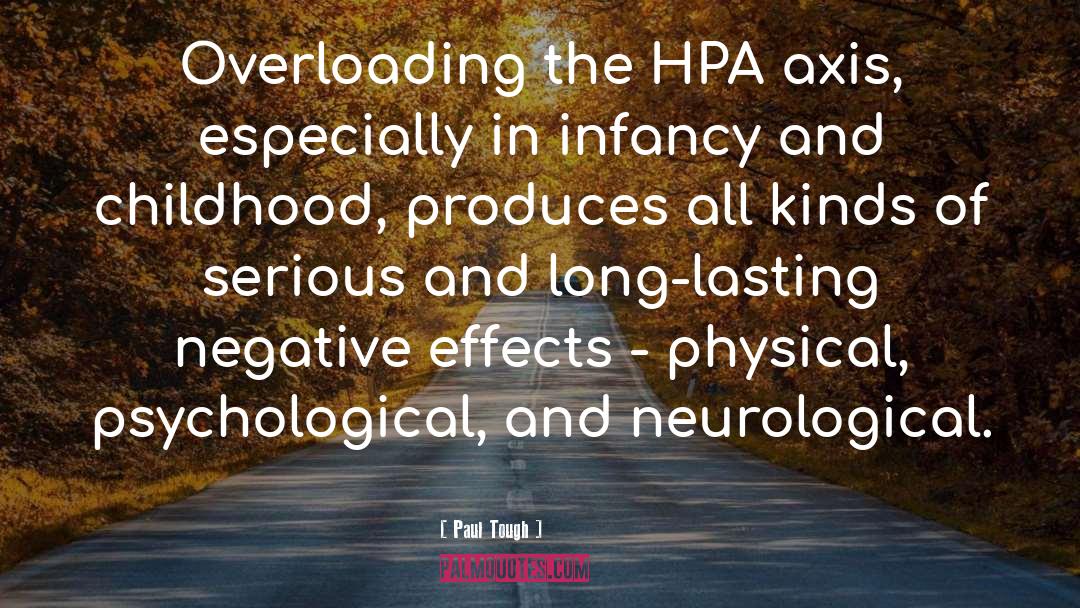Paul Tough Famous Quotes
Reading Paul Tough quotes, download and share images of famous quotes by Paul Tough. Righ click to see or save pictures of Paul Tough quotes that you can use as your wallpaper for free.
agreeableness, extraversion, neuroticism, openness to experience, and conscientiousness. And

Every child learned the skills and attitudes that are valued by their own class culture. But outside of the family unit, all skills were not considered to be equal. Modern American culture, Lareau wrote, valued the qualities that middle-class children were developing over the ones that poor and working-class children were developing. "Central institutions in the society, such as schools," Lareau wrote, "firmly and decisively promote strategies of concerted cultivation in child rearing. For working-class and poor families, the cultural logic of child rearing at home is out of synch with the standards of institutions." In one poor household Lareau studied, for example, family members didn't look each other in the eye when they spoke - an appropriate response in a culture where eye contact can be interpreted as a threat, but ill-suited to a job interview where a firm handshake and a steady gaze are considered assets, and a failure to make eye contact can make a candidate seem shifty.

What matters, instead, is whether we are able to help her develop a very different set of qualities, a list that includes persistence, self-control, curiosity, conscientiousness, grit, and self-confidence. Economists refer to these as noncognitive skills, psychologists call them personality traits, and the rest of us sometimes think of them as character.
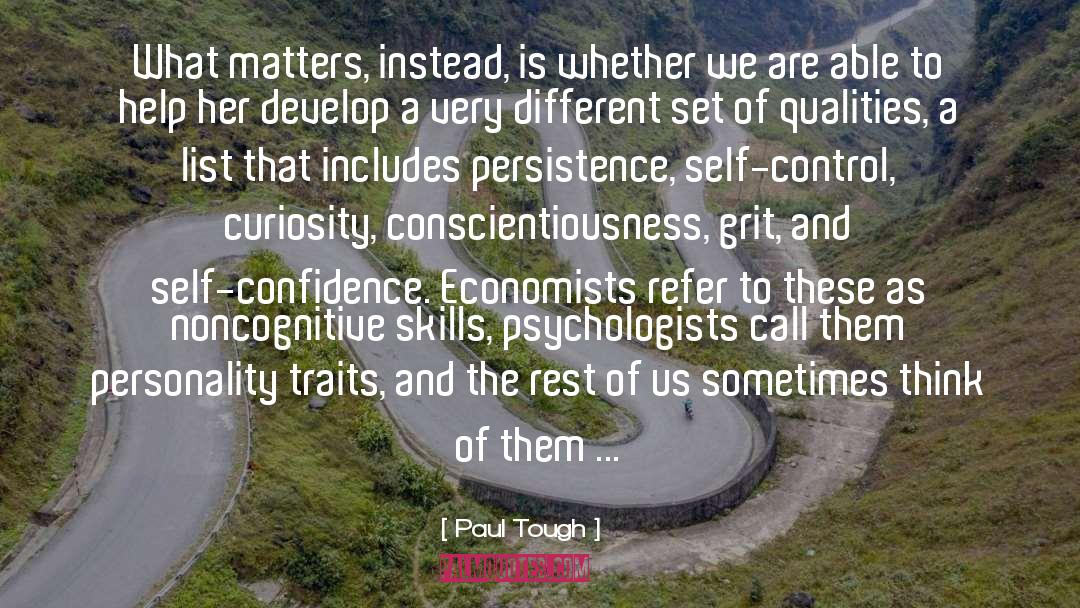
Any time you need to use the term hypothalamic-pituitary-adrenal in order to make your point, you've got trouble.

Chemistry is not destiny, certainly. But these scientists have demonstrated that the most reliable way to produce an adult who is brave and curious and kind and prudent is to ensure that when he is an infant, his hypothalamic-pituitary-adrenal axis functions well. And how do you do that? It is not magic. First, as much as possible, you protect him from serious trauma and chronic stress; then, even more important, you provide him with a secure, nurturing relationship with at least one parent and ideally two. That's not the whole secret of success, but it is a big, big part of it.
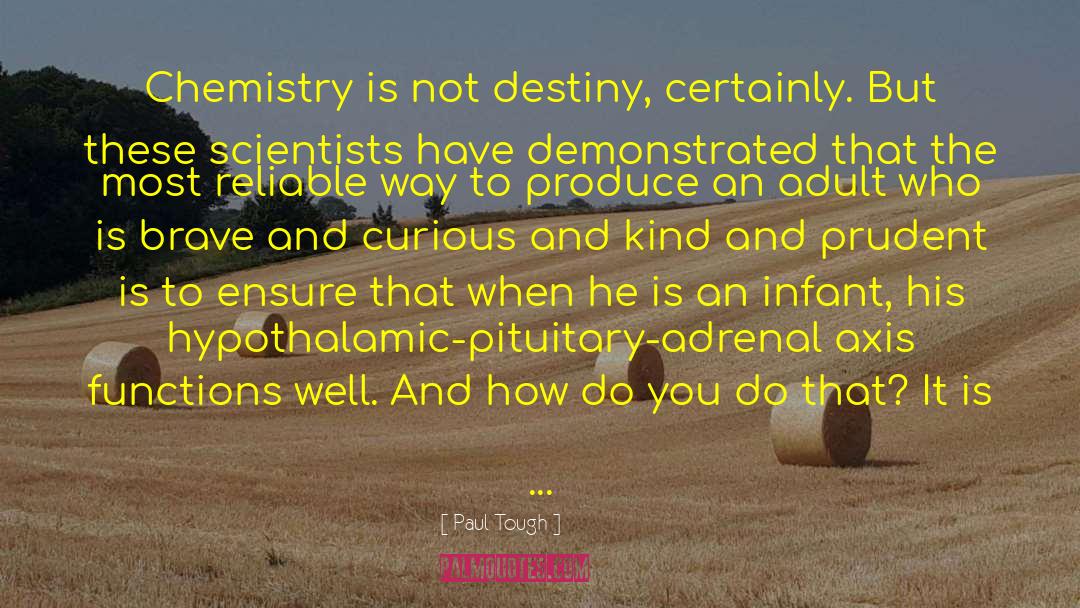
For her teenage daughter, though, those years didn't go so well. She had always told Stry, "I'm not going to turn out like you," and then that's exactly how she did turn out: pregnant at sixteen, a mother at seventeen, living with her own baby boy in a group home for teenage mothers, just like the one she had lived in as a baby girl sixteen years earlier.
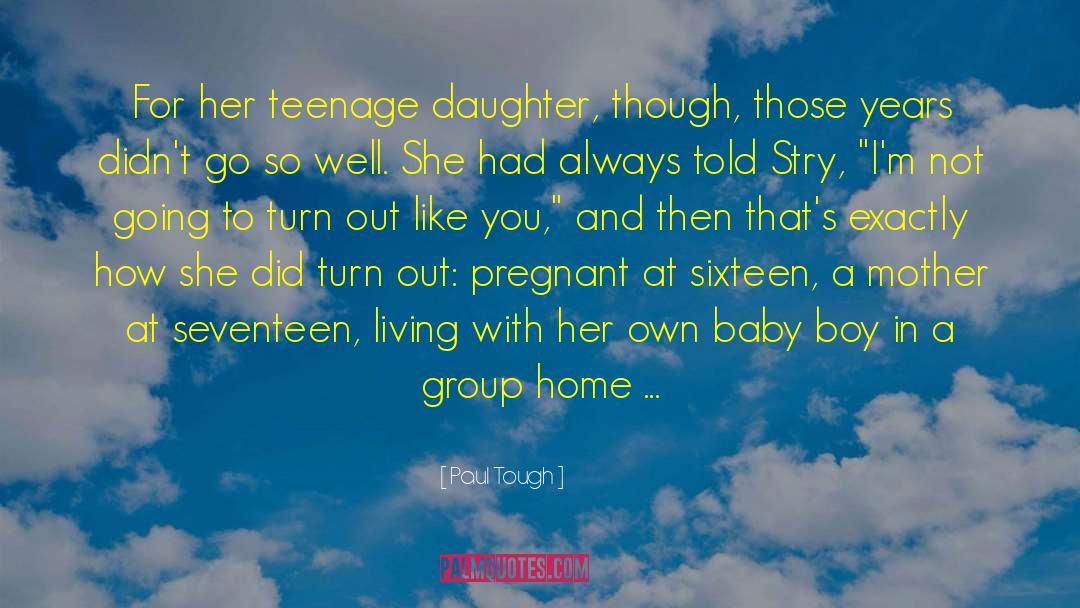
What matters most in a child's development, they say, is not how much information we can stuff into her brain in the first few years. What matters, instead, is whether we are able to help her develop a very different set of qualities, a list that includes persistence, self-control, curiosity, conscientiousness, grit and self-confidence.
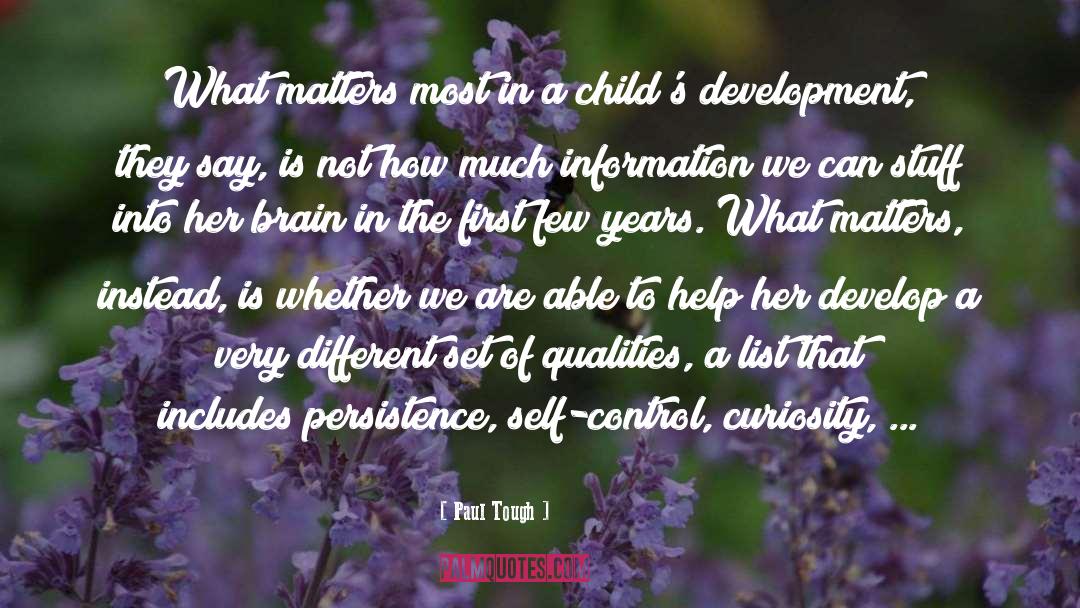
Heckman discovered that when you consider all kinds of important future outcomes - annual income, unemployment rate, divorce rate, use of illegal drugs - GED recipients look exactly like high-school dropouts, despite the fact that they have earned this supposedly valuable extra credential, and despite the fact that they are, on average, considerably more intelligent than high-school dropouts.

We "activate a physiological system that has evolved for responding to acute physical emergencies," Sapolsky writes, "but we turn it on for months on end, worrying about mortgages, relationships, and promotions.
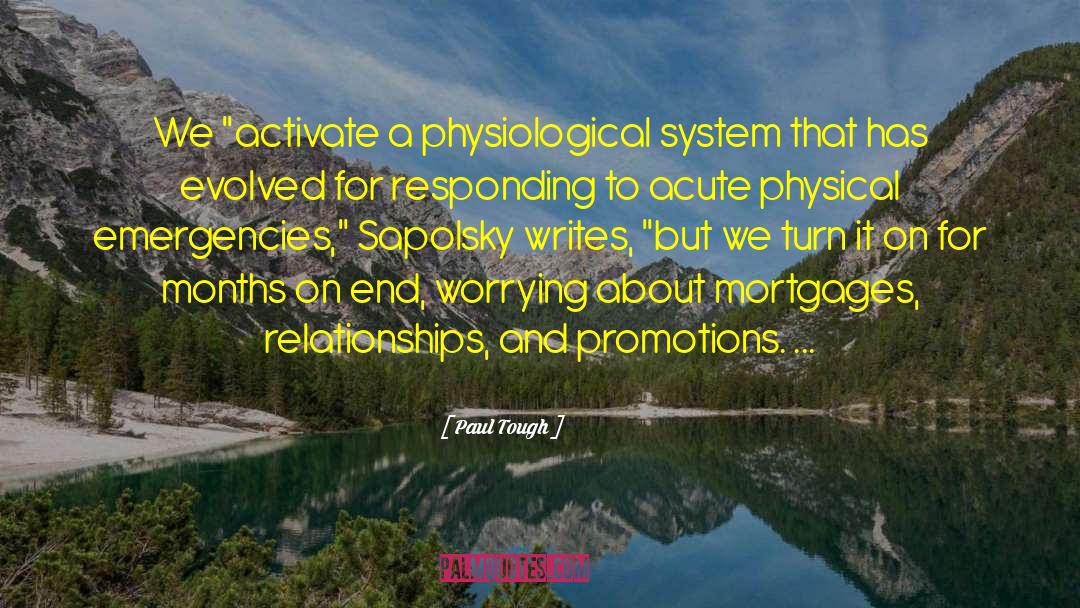
People high in conscientiousness get better grades in high school and college; they commit fewer crimes; and they stay married longer.

She sometimes felt less like a primary-care pediatrician and more like a battlefield surgeon, patching up her patients and sending them back to war.
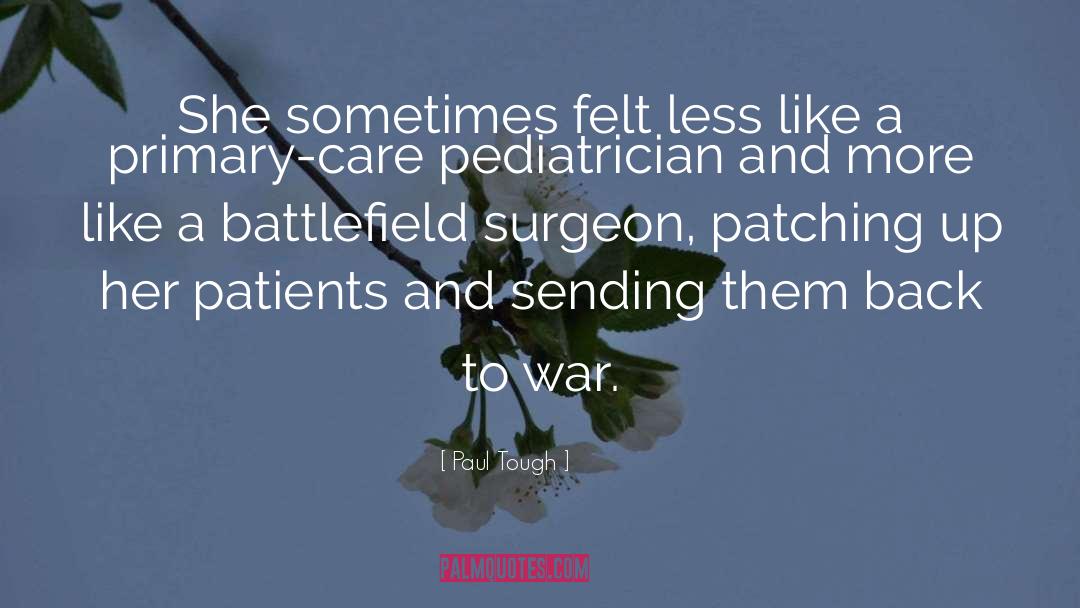
Both Cohen and Fierst told me that many parents at Riverdale, while pushing their children to excel, inadvertently shield them from exactly the kind of experience that can lead to character growth. As Fierst put it, "Our kids don't put up with a lot of suffering. They don't have a threshold for it. They're protected against it quite a bit. And when they do get uncomfortable, we hear from their parents. We try to talk to parents about having to sort of make it okay for there to be challenge, because that's where learning happens.
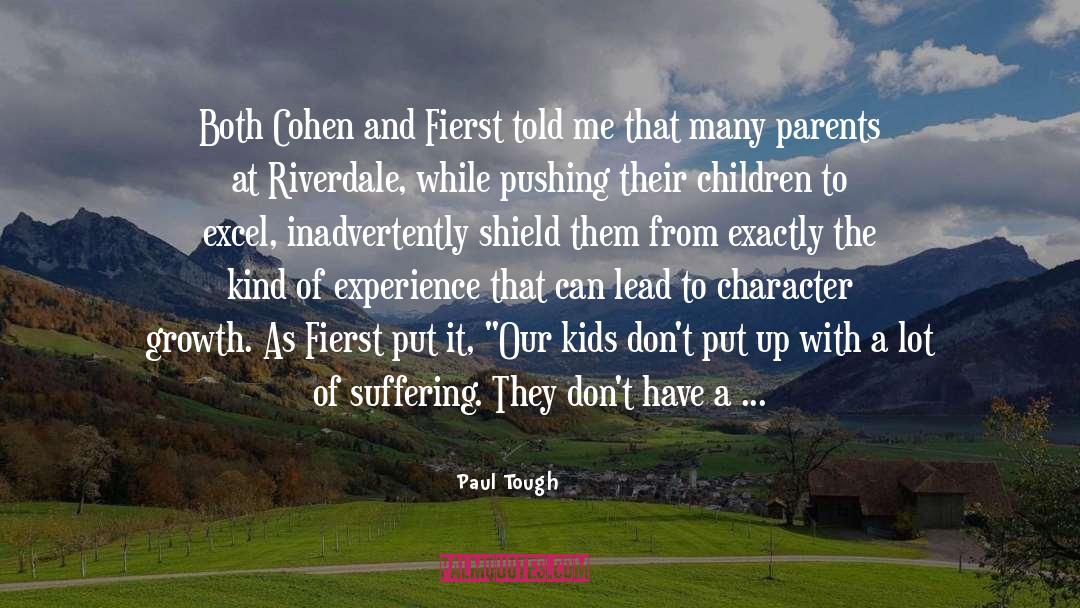
Optimists, by contrast, look for specific, limited, short-term explanations for bad events, and as a result, in the face of a setback, they're more likely to pick themselves up and try again.

character strengths that matter so much to young people's success are not innate; they don't appear in us magically, as a result of good luck or good genes. And they are not simply a choice. They are rooted in brain chemistry, and they are molded, in measurable and predictable ways, by the environment in which children grow
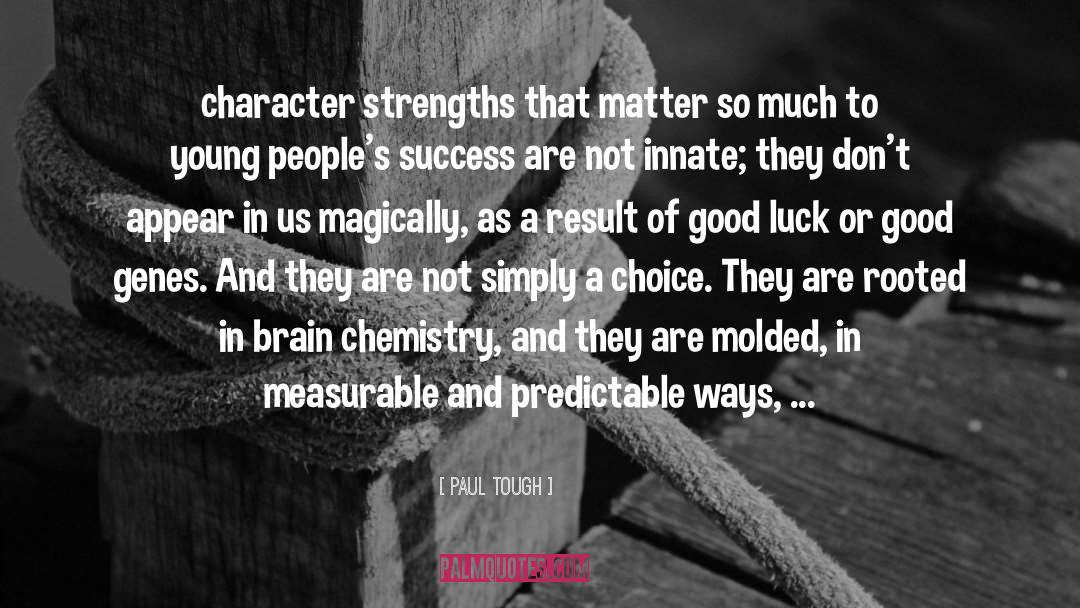
The part of the brain most affected by early stress is the prefrontal cortex, which is critical in self-regulatory activities of all kinds, both emotional and cognitive. As a result, children who grow up in stressful environments generally find it harder to concentrate, harder to sit still, harder to rebound from disappointments, and harder to follow directions. And that has a direct effect on their performance in school.
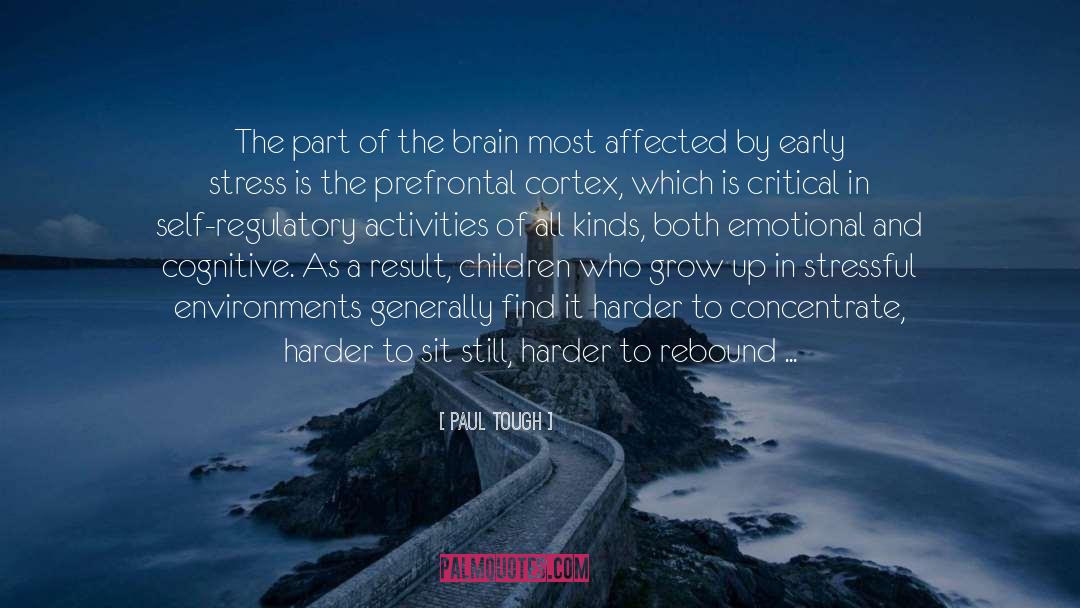
If we don't give kids the opportunity to fail when they're growing up, and to fail productively, to fail creatively, that they're going to get out there into the world and they're going to hit some kind of setback, like everybody does, and they're going to get completely derailed.
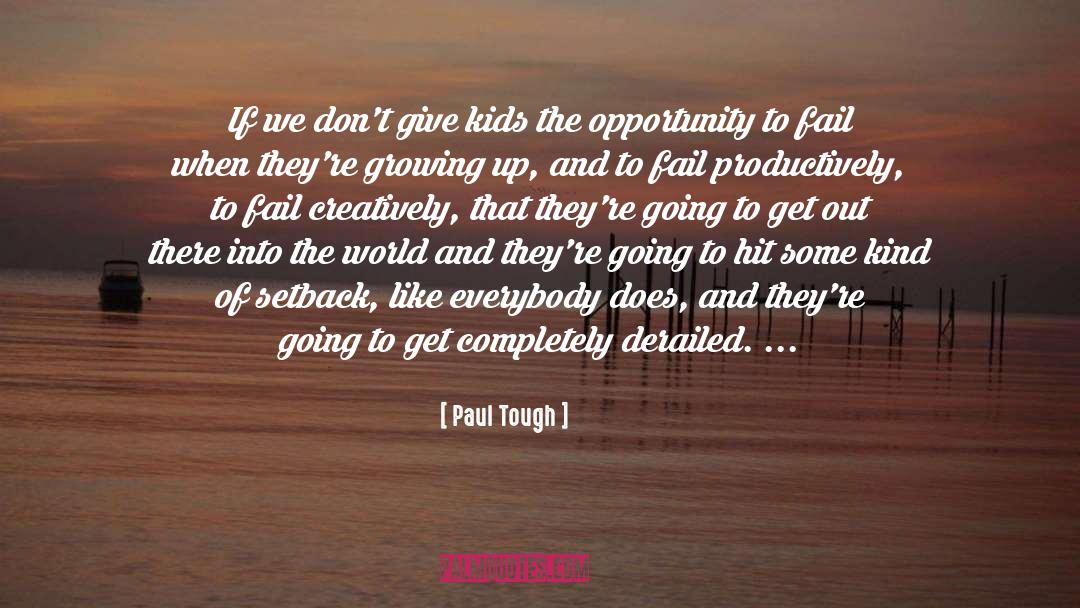
How do our experiences in childhood make us the adults we become? It is one of the great human questions, the theme of countless novels, biographies, and memoirs;
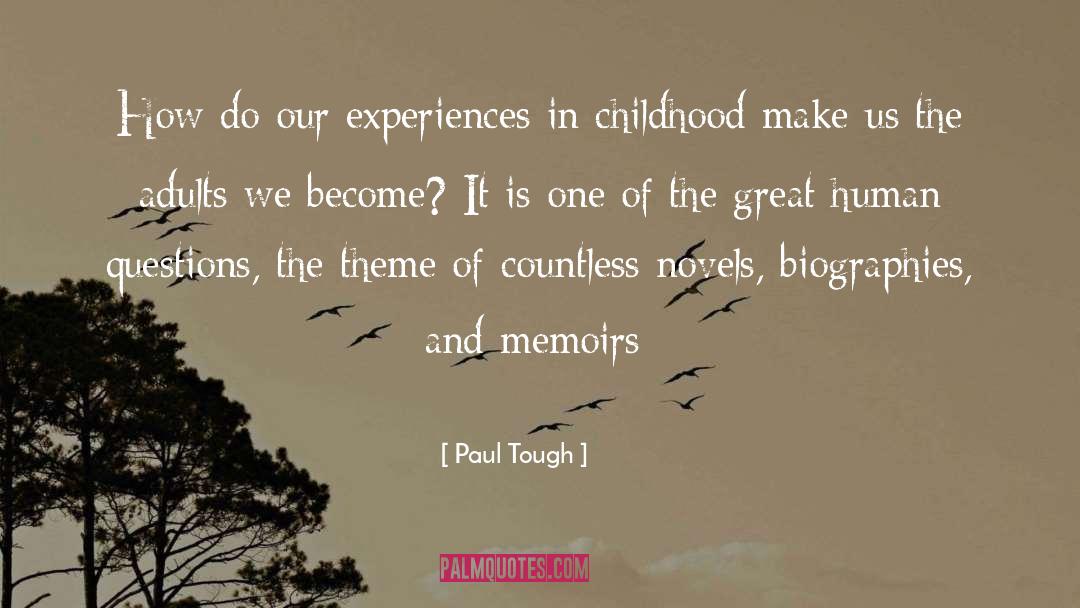
And in most highly academic environments in the United States, no one fails anything.

The problem, as Randolph has realized, is that the best way for a young person to build character is for him to attempt something where there is a real and serious possibility of failure. In a high-risk endeavor, whether it's in business or athletics or the arts, you are more likely to experience colossal defeat than in a low-risk one - but you're also more likely to achieve real and original success. "The idea of building grit and building self-control is that you get that through failure," Randolph explained.

If kids've been overprotected from failure in childhood, they get out into the world and they really get thrown off.
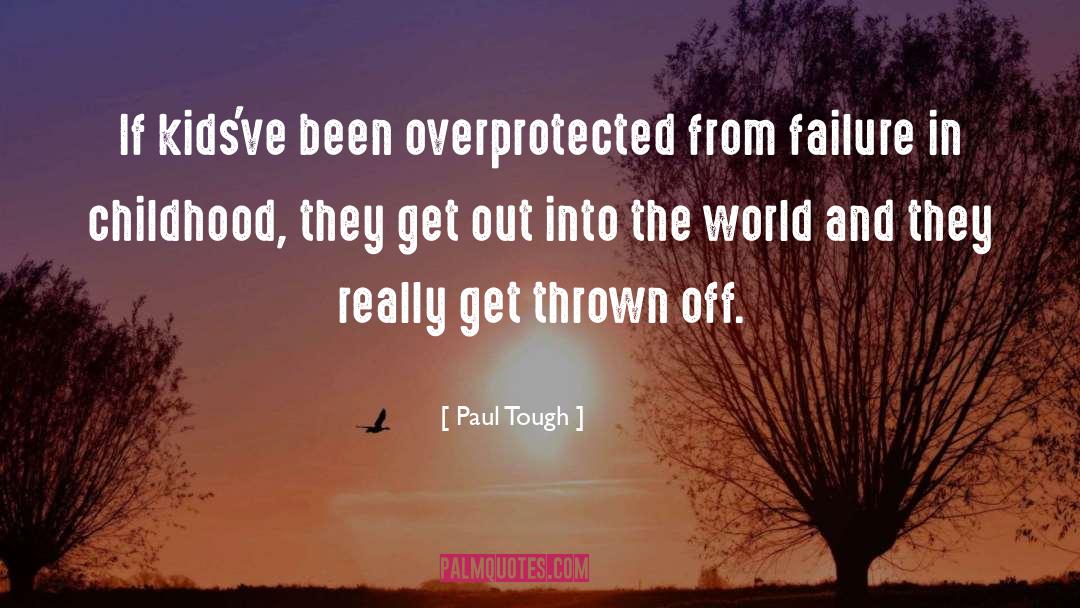
The capacities that develop in the earliest years may be harder to measure on tests of kindergarten readiness than abilities like number and letter recognition, but they are precisely the skills, closely related to executive functions, that researchers have recently determined to be so valuable in kindergarten and beyond: the ability to focus on a single activity for an extended period, the ability to understand and follow directions, the ability to cope with disappointment and frustration, the ability to interact capably with other students.
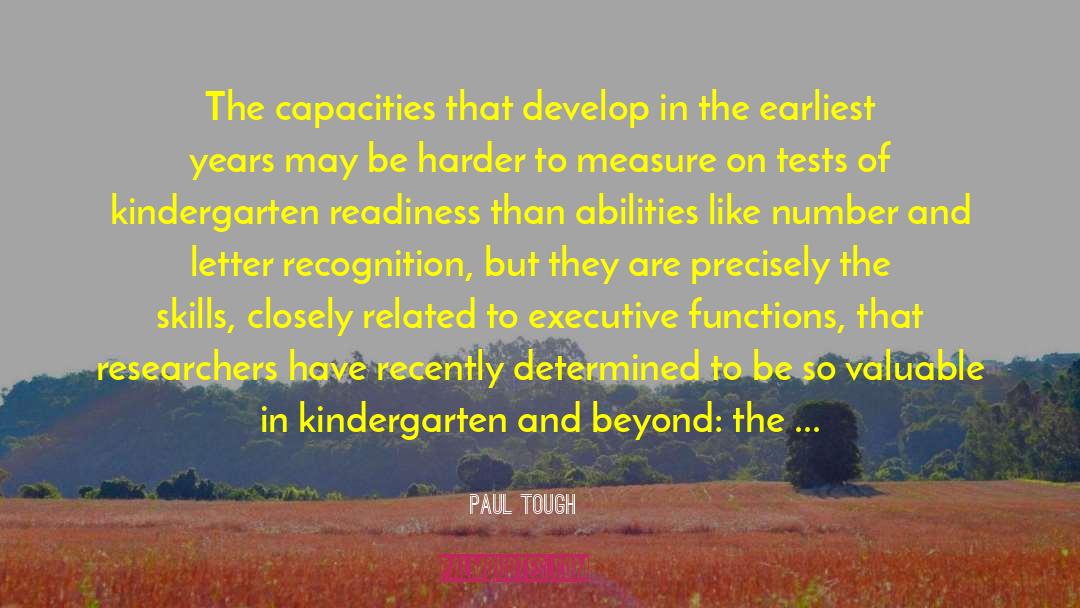
Overloading the HPA axis, especially in infancy and childhood, produces all kinds of serious and long-lasting negative effects - physical, psychological, and neurological.
